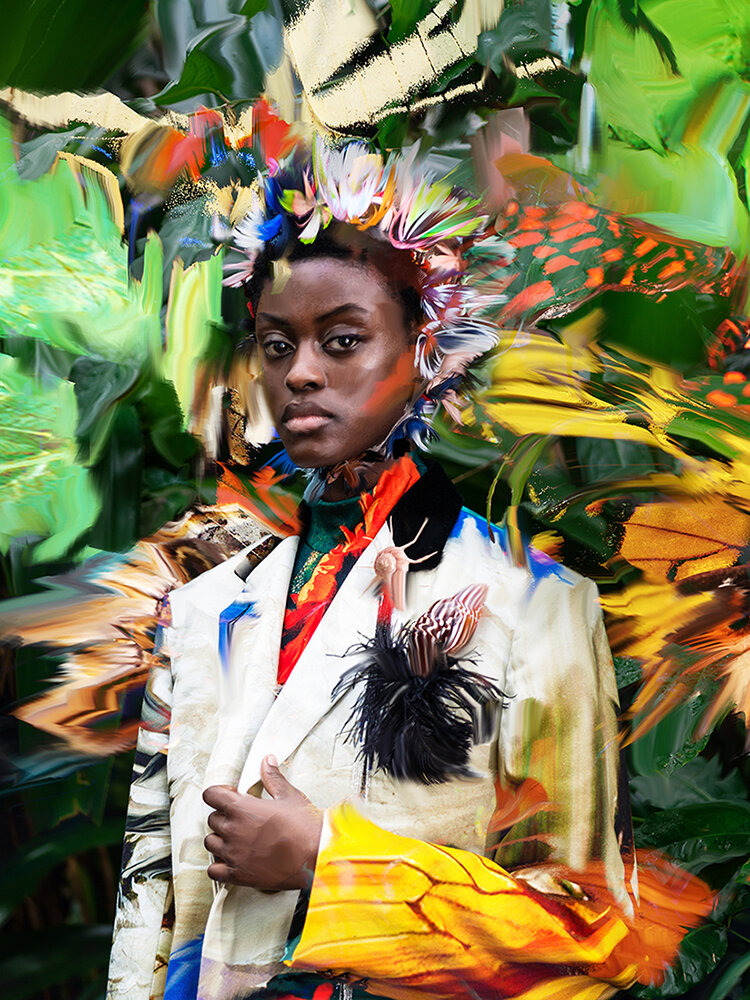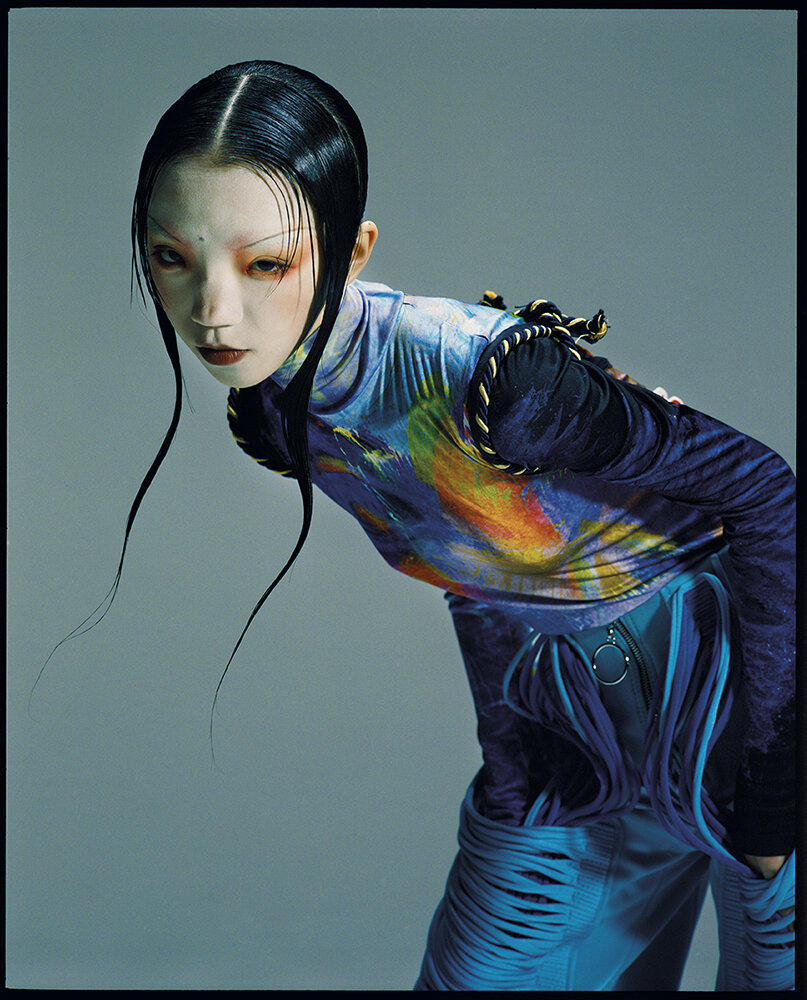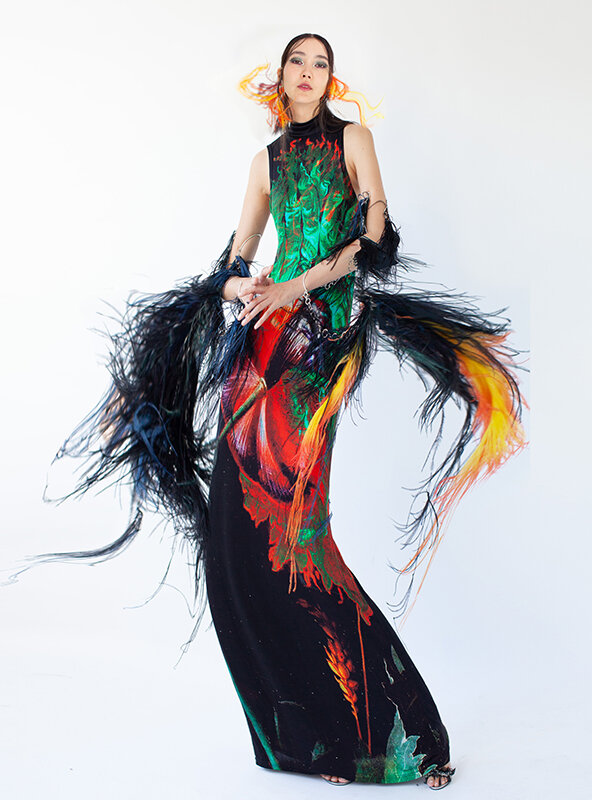UAL Creative Futures: Success Stories

Curious to learn more about how the UAL Creative Futures Programme can benefit your business? Hear from a previous cohort on the similar Graduate Incubation Programme, as they discuss how it helped their business thrive.
What was the status of your business coming into the programme compared to now?
Before I started in October 2020, the business was growing and I was in Paris selling my designs, but COVID hit and that stalled progress.
Joining the programme made me realise that the business I wanted to do in fashion is simply not viable without investment. A lot of people don’t tell you how impossible it is to run a fashion business because the business model itself can be challenging.
Through the programme, I was able to explore alternative business models and I realised that it wasn’t sensible to continue with my previous fashion business so this year I decided to pivot my business Rose Danford-Phillips Studios towards interior design and wallpaper.
This is something I have found to be more viable and easier to accomplish. Overall, the GIP got me to think practically about things, it’s not only about your dream, but also about what you’re good at and what’s realistic.
What aspect of the programme did you find to be most useful to the growth and development of your business?
All the classes were very good. Every single thing was tailored to my specific creative needs, such as social media, customer process and so much more.
The programme lead realised that people who have creative businesses or are creatives themselves have a different mindset and ways of thinking compared to others and so the classes were extremely helpful.
Did you find it helpful going through the programme as a cohort?
I definitely did because it’s really lonely starting your own business and that is one of the challenges I found so, it was nice to go through the programme with a diverse group of people.
This incubation programme is a little different in that it has a focus on circular economies, social justice and responsible use of emerging technologies.
I had already realised that this is something I wanted to do, and I found it useful that the programme required our business to have a focus on one or more of these areas.
Personally, I wanted to make my business as sustainable as possible because fashion is usually so wasteful.
On the course specifically, there could be further tailored mentoring on how we can implement circular economies, social justice and responsible use of emerging technologies in our businesses. It would have been helpful if we had a mentor who specifically covered these areas.
What was the biggest learning challenge during this process?
I would say that it was how everything is completely interconnected and to create one solid thing you have to understand everything individually in order to put it together into one.
Overall, I didn’t find anything particularly hard which was one of the nice things about it because the programme was laid out so well, it was a pleasure to do it.
Biggest achievement to date?
The clarity. I feel like I now know and understand how to build a business. When I first started my business, I did so without knowing anything whereas now I’m confident in the steps needed to achieve my goals.
Now that you have completed the programme, what is next for your business?
I am going to pitch my business to an interior conglomerate. I have an idea that’s really good and they have already connected with me and used my work for advertising purposes which is great.
This pitch is something I would have never done before but through the programme, I now know how to pitch, and my idea has been further developed. I have learned not to be too self-conscious about it and to just try.
Any further feedback on the programme?
The one thing that could be improved is providing more personal 1-1 mentorship, around once a month that way you have someone with you the whole way to keep you on track.



